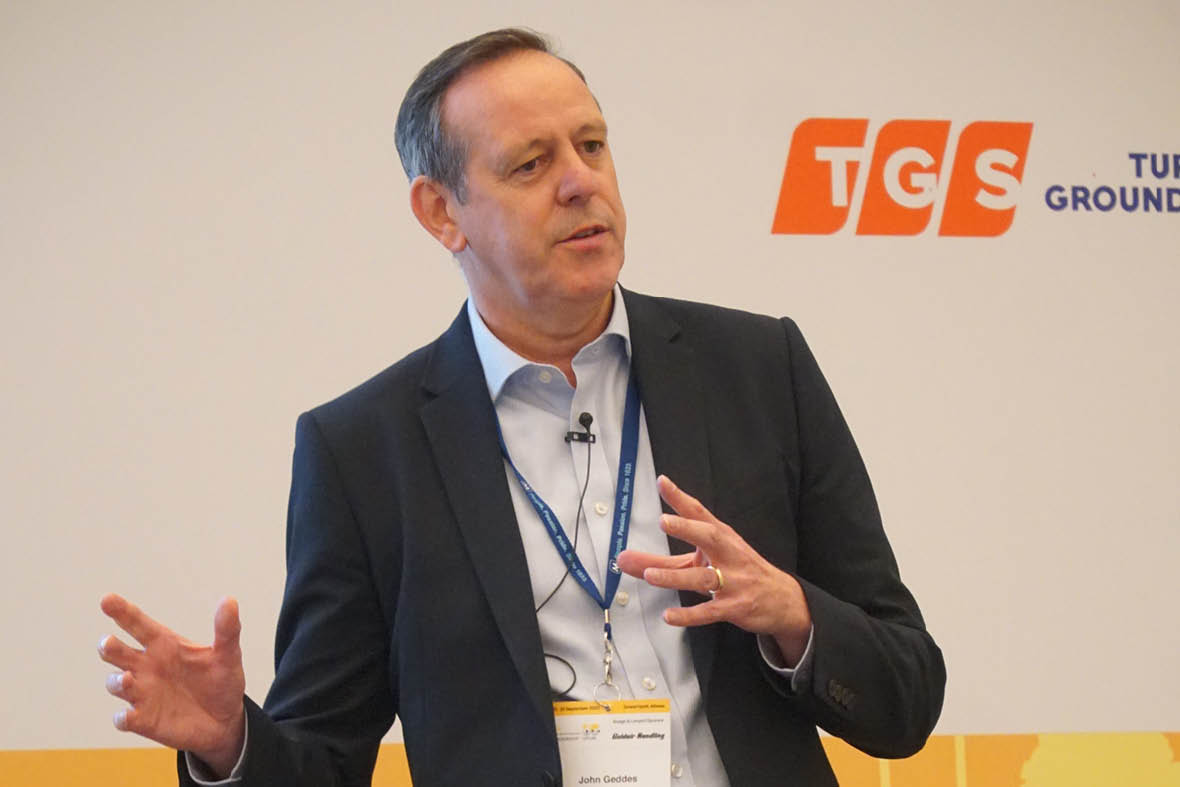The structure of the ground services market came under scrutiny at the ASA Leadership Forum, with ASA seeking to highlight some basic flaws in how the supply chain operates
John Geddes of Menzies, speaking in his role as Chairman of ASA’s Operating Board, presented ‘Markets & Contracts: the law of unintended consequences’, discussing the interdependency in the aviation supply chain of airlines, airports and services providers.
The basic premise is that service providers are not treated as an equal player in this triangle and operate at a disadvantage. Another major issue, raised several times during the Forum, is that at some airports too many handlers are allowed to operate, which produces a dysfunctional and low-performing market.
Geddes observed that open handling markets can lead to over-supply, creating a low-margin environment with pricing pressure on service providers. In turn, this forces downward pressure on wages, making aviation jobs less attractive and leading to high staff turnover.
In terms of issues around contracting, Geddes highlighted short-term thinking, the idea that risk and cost transfer can be at unacceptable levels for service providers, and there can be a lack of acceptance of service provider expertise, he explained.
He warns of a “vicious circle” as contracting, pricing pressure and over-supplied markets – the “unintended consequences” – bring poor passenger experience, damage to brands, cost increases and regulatory fines.
During the Forum, Swissport CEO Warwick Brady noted that the airport licensing regime for bringing in handlers is an important focus area for ASA. “There needs to be good competition [between handlers] and the ability to change handler, but also barriers to entry,” he said.
ASA is calling for regulators and airports to adhere to minimum standards to deliver a level playing field. Steve Allen, CEO of dnata, gave the example of a market where the playing field is “right down at the bottom”: the US.
“People turn up for work in trainers and jeans with no safety vests. They work for multiple different companies on the same day,” he explained. “They choose if it is raining whether they go outside. Some of the equipment is of a terrible standard and falling apart, and we know that the number of safety incidents in the US has been quite significant in the last few years because of high staff turnover.
“That, for me, is a level playing field that is set the wrong way,” said Allen. “We need to get to a level where the regulator sets the minimum standard for safety and security, for equipment. But if you allow a free-for-all, which is what is happening in the US now, the industry is not going to be in a good place.”
How standards are brought in to achieve a level playing field is a complex question, with Aviapartner CEO Richard Prince noting “the challenge with regulation is always the same: it just becomes bureaucracy.”
He asked, “How do we continue as leaders in the marketplace to set our own standards?” In partnership with all players, if service providers can innovate to improve the customer journey, and add value to airlines and to airports, “We might create a barrier to entry that is based on quality and great organisations and great leaders and great relationships – and not through regulation,” Prince said.
On the contracting side, Geddes said ASA members are seeking a fixed-term contract that allows investment; termination provisions that do not allow opportunism of switching at short notice for a better price; a connection to inflation to allow fair pay; payment terms that mean handlers do not act as banks; and the ability to adjust prices in the event of material schedule changes.
“We are the logistics professionals that deliver up to 12 million turnarounds per year as an industry,” said Geddes, but in some cases, because of the issues he highlighted, the “current system can deliver poor passenger experience”.
Speaking on the ‘Around the world in 60 minutes’ panel, Hugo Ehrhard, Commercial Director at Groupe Europe Handling, said: “I have noticed [since the pandemic] a stronger sense of partnership from some customers.” With inflationary pressures abounding, “Many are showing some understanding, but we are not there yet.”
ASA is preparing a white paper that highlights these issues, said Geddes, to be published soon.



